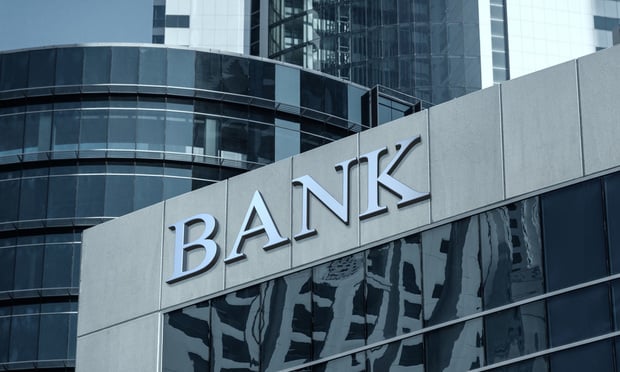WASHINGTON, DC–The Federal Reserve's Beige Book is usually a grab bag of impressions from the businesses people and other contacts that the Central Bank queries and the latest report, released Wednesday, is no exception. The inconsistencies can make, to be frank, for a frustrating if not dizzying read.
To cite one example, in its latest report the Beige Book concludes that the outlook for commercial real estate is neutral-to-pessimistic in Hartford and modestly optimistic for Providence and Boston. Yet several sentences prior to that “modestly optimistic outlook” for Boston noted that office leasing activity is moving at a healthy pace in greater Boston, where office rents are up slightly in recent weeks and up roughly 5% since last year.
Of course, much has to do with the asset class in question.
For example, the Beige Book reports that New York City's rental market has softened further in both Manhattan and the outer boroughs with rents on larger and luxury apartments continuing to slip and more landlords are offering concessions. On the other hand, Manhattan's office asking rents picked up in July and August while availability remained unchanged.
Overall, the Beige Book's conclusion for the commercial real estate sector was that activity expanded in most Districts.
Then Comes the “But”
However, it did note one interesting observation as it concluded its summary of CRE activity for the period.
Contacts in several Districts cited only modest expectations for sales and construction activity moving forward, due in part to economic uncertainty surrounding the November elections.
US Finance Execs Move Forward
How much of that slowdown is due to the election uncertainty and how much may be due to the maturing real estate cycle is unclear. Indeed, elsewhere there have been several indications that US businesses in general are shrugging off the US presidential election outcome.
Most recently, a survey [PDF] by the American Institute of CPAs found that of the US finance executives surveyed 79% said the election is not a factor in hiring decisions. In addition, a majority reported that the election would not affect capital expenditures and business expansion decisions with half saying it wouldn't be a factor at all and 31% planning to spend spending at the their current pace.
Moody's to Keep US Rating the Same
Separately, Moody's Investors Service has announced that the outcome of the forthcoming US Presidential election will not impact the United States' Aaa stable credit rating. It said:
That credit rating reflects the US sovereign's very high economic and institutional strength, strong debt affordability and its very low susceptibility to event risk given the role of the US dollar as global reserve currency and US Treasuries as global bond benchmark. These credit strengths indicate the credit rating is resilient to policy shifts or changes in government.
Moody's does go on to note that in the medium term the presidential winner could have an impact on the US credit profile, especially via the cost of Social Security, Medicare, and Medicaid — and it is perhaps these concerns that the Beige Book reports are reflecting. It said that:
While each candidate's policy platform continues to take shape, at this point neither has yet discussed in detail how these medium-term fiscal pressures will be addressed….Wider proposals for tax and healthcare reform could in some cases enhance fiscal pressures, given their uncertain impact on growth.
Interestingly, the issues the candidates are talking about — immigration and trade namely — do not have as great of an impact on the US credit rating.
WASHINGTON, DC–The Federal Reserve's Beige Book is usually a grab bag of impressions from the businesses people and other contacts that the Central Bank queries and the latest report, released Wednesday, is no exception. The inconsistencies can make, to be frank, for a frustrating if not dizzying read.
To cite one example, in its latest report the Beige Book concludes that the outlook for commercial real estate is neutral-to-pessimistic in Hartford and modestly optimistic for Providence and Boston. Yet several sentences prior to that “modestly optimistic outlook” for Boston noted that office leasing activity is moving at a healthy pace in greater Boston, where office rents are up slightly in recent weeks and up roughly 5% since last year.
Of course, much has to do with the asset class in question.
For example, the Beige Book reports that
Overall, the Beige Book's conclusion for the commercial real estate sector was that activity expanded in most Districts.
Then Comes the “But”
However, it did note one interesting observation as it concluded its summary of CRE activity for the period.
Contacts in several Districts cited only modest expectations for sales and construction activity moving forward, due in part to economic uncertainty surrounding the November elections.
US Finance Execs Move Forward
How much of that slowdown is due to the election uncertainty and how much may be due to the maturing real estate cycle is unclear. Indeed, elsewhere there have been several indications that US businesses in general are shrugging off the US presidential election outcome.
Most recently, a survey [PDF] by the American Institute of CPAs found that of the US finance executives surveyed 79% said the election is not a factor in hiring decisions. In addition, a majority reported that the election would not affect capital expenditures and business expansion decisions with half saying it wouldn't be a factor at all and 31% planning to spend spending at the their current pace.
Moody's to Keep US Rating the Same
Separately, Moody's Investors Service has announced that the outcome of the forthcoming US Presidential election will not impact the United States' Aaa stable credit rating. It said:
That credit rating reflects the US sovereign's very high economic and institutional strength, strong debt affordability and its very low susceptibility to event risk given the role of the US dollar as global reserve currency and US Treasuries as global bond benchmark. These credit strengths indicate the credit rating is resilient to policy shifts or changes in government.
Moody's does go on to note that in the medium term the presidential winner could have an impact on the US credit profile, especially via the cost of Social Security, Medicare, and Medicaid — and it is perhaps these concerns that the Beige Book reports are reflecting. It said that:
While each candidate's policy platform continues to take shape, at this point neither has yet discussed in detail how these medium-term fiscal pressures will be addressed….Wider proposals for tax and healthcare reform could in some cases enhance fiscal pressures, given their uncertain impact on growth.
Interestingly, the issues the candidates are talking about — immigration and trade namely — do not have as great of an impact on the US credit rating.
Want to continue reading?
Become a Free ALM Digital Reader.
Once you are an ALM Digital Member, you’ll receive:
- Breaking commercial real estate news and analysis, on-site and via our newsletters and custom alerts
- Educational webcasts, white papers, and ebooks from industry thought leaders
- Critical coverage of the property casualty insurance and financial advisory markets on our other ALM sites, PropertyCasualty360 and ThinkAdvisor
Already have an account? Sign In Now
*May exclude premium content© 2024 ALM Global, LLC, All Rights Reserved. Request academic re-use from www.copyright.com. All other uses, submit a request to [email protected]. For more information visit Asset & Logo Licensing.









